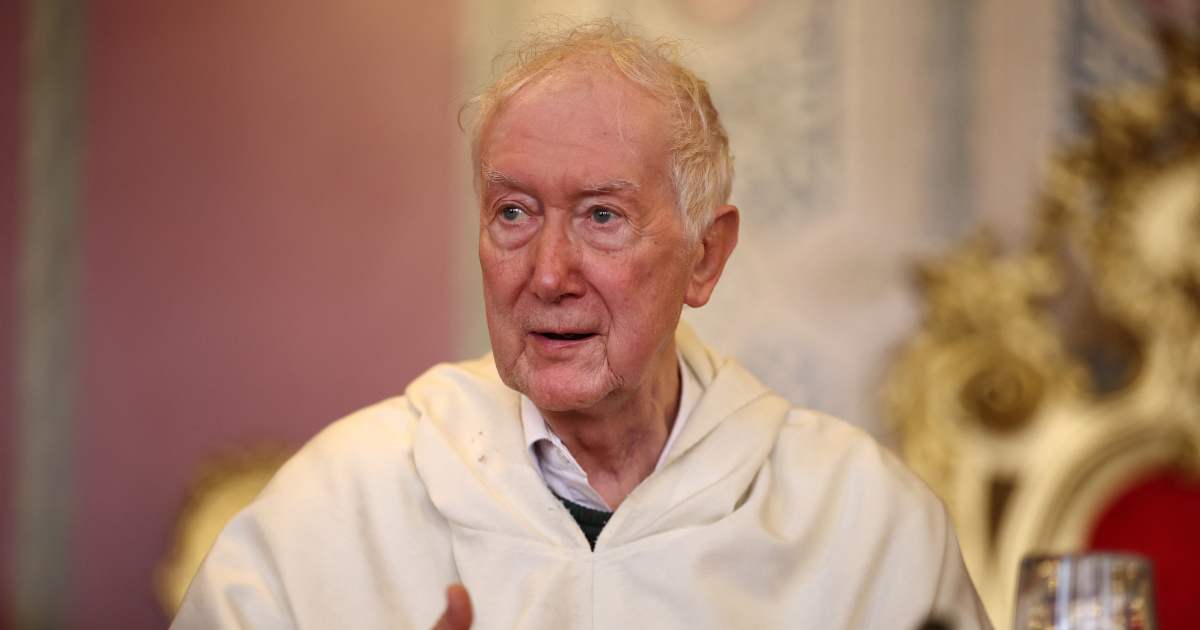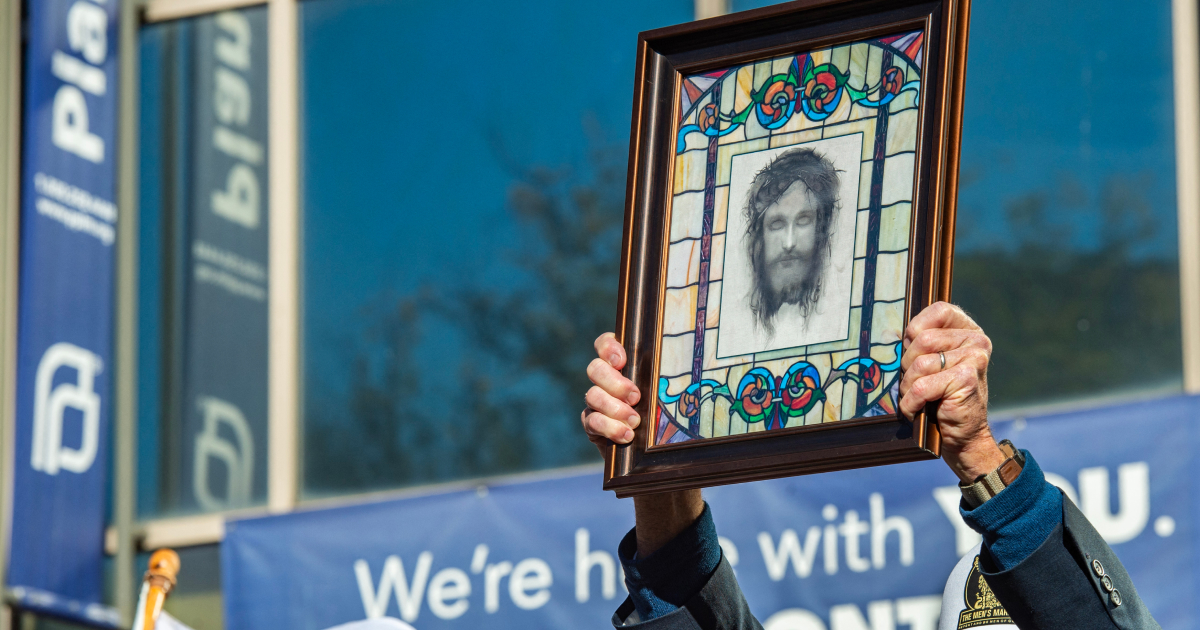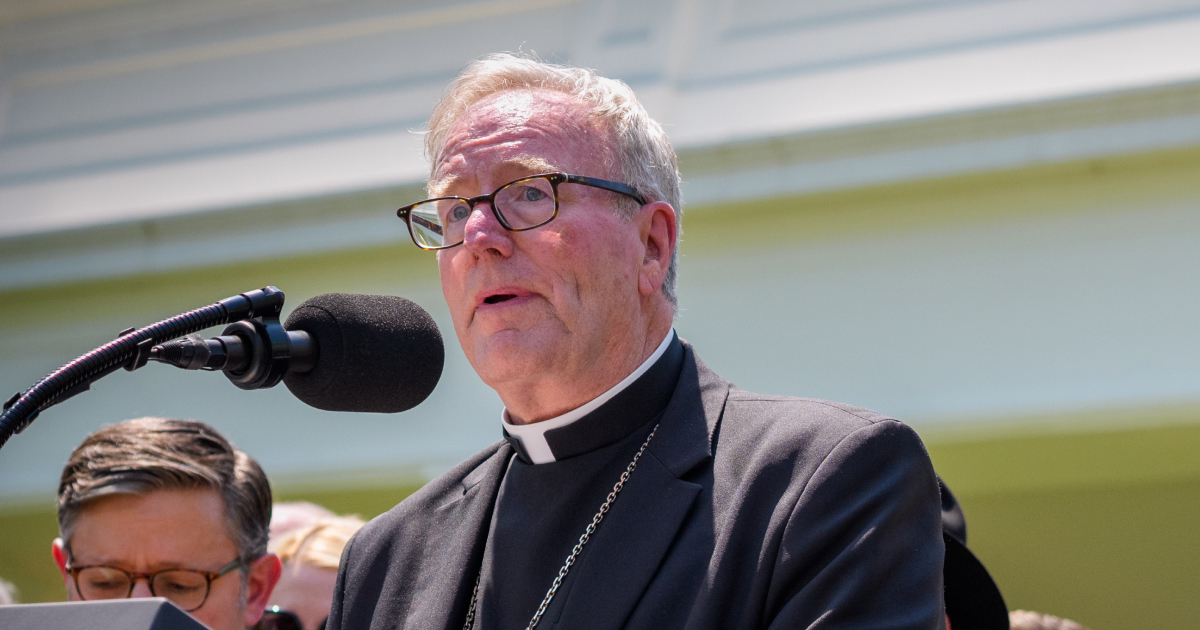The announcement that James Timpson is the new Minister for Prisons, Probation and Parole was one of the few surprises – and one of the biggest – announced by Sir Keir Starmer as he assembled his new Cabinet.
Unlike his brother Edward – an established and well-liked and respected Conservative MP – James has no previous experience as a politician. So why has he been given what is, in my view, the most difficult job in UK Government?
Perhaps it is because he is not a politician. He has built a genuinely socially minded business, the chain of Timpson service retailers across the UK, whilst gathering a formidable level of expertise and credibility in the lives of prisoners, while retaining the straightforward social media handle "JamesTCobbler".
It’s a source of many a droll gag that the person cutting your keys in a branch of Timpson may well have been under lock and key themselves at His Majesty’s Pleasure. Timpson has shown the way forward in offering second chances to former prisoners, who his company train and support back into the world of work.
And as James Timpson has pointed out, they are rarely let down. About 10 per cent of Timpson employees are former prisoners, who Timpson describes as “great colleagues”. Some of them are now in area management positions.
Timpson went on to establish the Timpson Academy, training prisoners while encarcerated for jobs in the business and elsewhere after release. He doesn’t just talk the talk. When he talks about rehabilitation, he has shown that he means business.
It’s an experience we share at Pact, the national Catholic charity for people in prison and their families. We also employ people with first-hand lived experience of the criminal justice system – they have either been in prison or have had a loved-one behind bars. With rare exceptions, they are the most loyal, honest and determined staff on our books. They keep us honest and they help to shape the work that we do as a charity.
John Timpson, James’ father, once told me how during the Second World War, members of the family firm would stand outside prisons offering to train prison leavers in their factories. The Timpson family fostered many children, so that James and Edward grew up with foster siblings, many of whom had parents in prison, or had similarly challenging lives.
It seems to me that it was an exemplary childhood of Christian values and formation in how to live out “the common good”. And, dare I say, in how to be a mission-driven government minister who knows their business and the people in it.
Pact warmly welcomes James Timpson’s appointment. Our prisons are not just overcrowded, but full. Unless brave action is taken, quickly, there is a serious risk of unrest.
Too many people are dying in prison. Levels of self-harm are sky high. Staff are outnumbered. As our new Prime Minister said at his first press conference, UK prisons are “broken”. Pact has been saying this for years, even when it has been an inconvenient truth for the UK Government. Now the new boss is saying it and he is right.
RELATED: Our prisons are in crisis: our new government must act
Over the coming months, the new UK Government has no choice other than to release more prisoners early. We are at the point now where there is no “headroom” left in the system and we cannot build new prisons fast enough to accommodate the demand.
It’s a demand driven as much by our failure to care for mentally ill people in our communities, as it is by the clamour to lock people up for longer. There is no evidence that longer sentences reduce crime. And when people live in squalor, with nothing to do, there is ample evidence that it simply makes people worse, and increases the likelihood that they will reoffend.
James Timpson understands this. At Pact we are sharing our own ideas for policy and action in the hope of supporting him and his mission. It’s a tough decision to release people early and will be controversial. There will inevitably be crimes committed by some of those released early. But the chances are, they would have committed those crimes a month or two later anyway.
The crisis in our prisons is the result of political decisions stretching back decades and a conveyor belt of ministers who have largely failed to display the courage required to deliver change.
Prisons have endured years of funding cuts while locking up more and more people – many of whom are seriously mentally ill – for longer and longer.
The Probation Service is also struggling, and there are real concerns about its capacity to provide the necessary support for early releases. Pact and other charities are on standby. We know that we could be part of the solution, supporting people on their journey from prison to good lives after release.
We need to get behind Prisons Minister “James T Cobbler”. Already, we are seeing a knee-jerk reaction and misrepresentations of what he is saying and proposing.
A Daily Telegraph headline asked whether he is “the most dangerous man in Britain”. No, of course he is not. Unlike most prisons ministers I have met in the past 20 years, he actually wants the job and understands it.
With the right backing from the top, and from those of us who live and breathe prisons, he might have a chance of cobbling together some solutions.
We can only make our society safer and reduce crime if we put the right people in prison and then ensure that they leave better than when they went in. Pact has been supporting prisoners and their families for 125 years, to cope with a prison sentence, and to make a fresh start.
We are ready to help, but it will take a lot more support from many different areas if the UK is to succeed in sorting out its prisons.
Photo: James Timpson; screenshot from @10DowningStreet.
Andy Keen-Downs is the Chief Executive of Pact, the national Catholic charity for people in prison and their families. www.prisonadvice.org.uk
The announcement that James Timpson is the new Minister for Prisons, Probation and Parole was one of the few surprises – and one of the biggest – announced by Sir Keir Starmer as he assembled his new Cabinet.
Unlike his brother Edward – an established and well-liked and respected Conservative MP – James has no previous experience as a politician. So why has he been given what is, in my view, the most difficult job in UK Government?
Perhaps it is because he is not a politician. He has built a genuinely socially minded business, the chain of Timpson service retailers across the UK, whilst gathering a formidable level of expertise and credibility in the lives of prisoners, while retaining the straightforward social media handle "JamesTCobbler".
It’s a source of many a droll gag that the person cutting your keys in a branch of Timpson may well have been under lock and key themselves at His Majesty’s Pleasure. Timpson has shown the way forward in offering second chances to former prisoners, who his company train and support back into the world of work.
And as James Timpson has pointed out, they are rarely let down. About 10 per cent of Timpson employees are former prisoners, who Timpson describes as “great colleagues”. Some of them are now in area management positions.
Timpson went on to establish the Timpson Academy, training prisoners while encarcerated for jobs in the business and elsewhere after release. He doesn’t just talk the talk. When he talks about rehabilitation, he has shown that he means business.
It’s an experience we share at Pact, the national Catholic charity for people in prison and their families. We also employ people with first-hand lived experience of the criminal justice system – they have either been in prison or have had a loved-one behind bars. With rare exceptions, they are the most loyal, honest and determined staff on our books. They keep us honest and they help to shape the work that we do as a charity.
John Timpson, James’ father, once told me how during the Second World War, members of the family firm would stand outside prisons offering to train prison leavers in their factories. The Timpson family fostered many children, so that James and Edward grew up with foster siblings, many of whom had parents in prison, or had similarly challenging lives.
It seems to me that it was an exemplary childhood of Christian values and formation in how to live out “the common good”. And, dare I say, in how to be a mission-driven government minister who knows their business and the people in it.
Pact warmly welcomes James Timpson’s appointment. Our prisons are not just overcrowded, but full. Unless brave action is taken, quickly, there is a serious risk of unrest.
Too many people are dying in prison. Levels of self-harm are sky high. Staff are outnumbered. As our new Prime Minister said at his first press conference, UK prisons are “broken”. Pact has been saying this for years, even when it has been an inconvenient truth for the UK Government. Now the new boss is saying it and he is right. <br><br><strong>RELATED: <a href="https://catholicherald.co.uk/how-we-treat-people-in-prison-is-a-reflection-of-our-society-and-ourselves-as-followers-of-christ/"><mark style="background-color:rgba(0, 0, 0, 0)" class="has-inline-color has-vivid-cyan-blue-color">Our prisons are in crisis: our new government must act</mark></a></strong>
Over the coming months, the new UK Government has no choice other than to release more prisoners early. We are at the point now where there is no “headroom” left in the system and we cannot build new prisons fast enough to accommodate the demand.
It’s a demand driven as much by our failure to care for mentally ill people in our communities, as it is by the clamour to lock people up for longer. There is no evidence that longer sentences reduce crime. And when people live in squalor, with nothing to do, there is ample evidence that it simply makes people worse, and increases the likelihood that they will reoffend.
James Timpson understands this. At Pact we are sharing our own ideas for policy and action in the hope of supporting him and his mission. It’s a tough decision to release people early and will be controversial. There will inevitably be crimes committed by some of those released early. But the chances are, they would have committed those crimes a month or two later anyway.
The crisis in our prisons is the result of political decisions stretching back decades and a conveyor belt of ministers who have largely failed to display the courage required to deliver change.
Prisons have endured years of funding cuts while locking up more and more people – many of whom are seriously mentally ill – for longer and longer.
The Probation Service is also struggling, and there are real concerns about its capacity to provide the necessary support for early releases. Pact and other charities are on standby. We know that we could be part of the solution, supporting people on their journey from prison to good lives after release.
We need to get behind Prisons Minister “James T Cobbler”. Already, we are seeing a knee-jerk reaction and misrepresentations of what he is saying and proposing.
A <em>Daily Telegraph </em>headline asked whether he is “the most dangerous man in Britain”. No, of course he is not. Unlike most prisons ministers I have met in the past 20 years, he actually wants the job and understands it.
With the right backing from the top, and from those of us who live and breathe prisons, he might have a chance of cobbling together some solutions.
We can only make our society safer and reduce crime if we put the right people in prison <em>and</em> then ensure that they leave better than when they went in. Pact has been supporting prisoners and their families for 125 years, to cope with a prison sentence, and to make a fresh start.
We are ready to help, but it will take a lot more support from many different areas if the UK is to succeed in sorting out its prisons.<br><br><em>Photo: James Timpson; screenshot from <mark style="background-color:rgba(0, 0, 0, 0)" class="has-inline-color has-vivid-cyan-blue-color"><a href="https://x.com/10DowningStreet/status/1809295371727687742">@10DowningStreet</a></mark>.</em>
<em>Andy Keen-Downs is the Chief Executive of Pact, the national Catholic charity for people in prison and their families. <a href="http://www.prisonadvice.org.uk/" target="_blank" rel="noreferrer noopener">www.prisonadvice.org.uk</a></em>


















